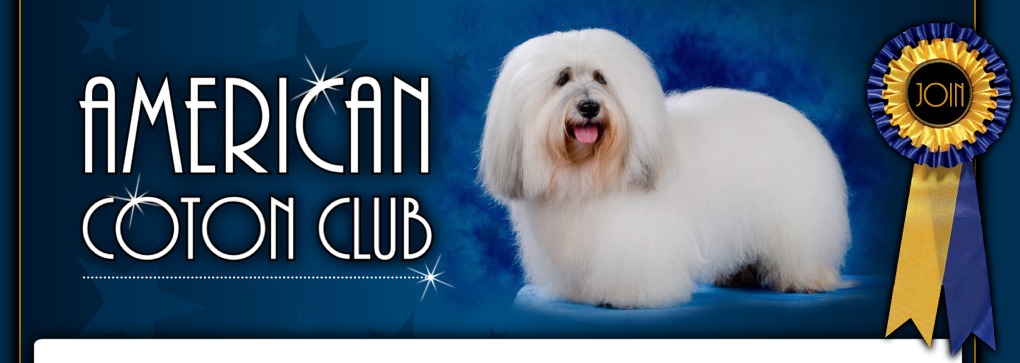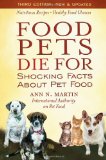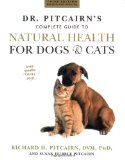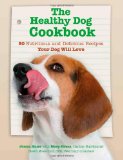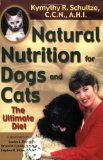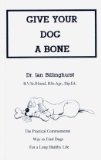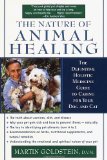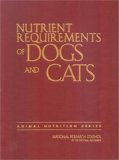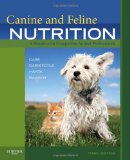Preventive Health
Dogs are living longer and healthier lives due to advances in veterinary care, better nutrition and better overall care by dog owners. Cotons can live 13+ years and there are many things you can do to better the odds your Coton will live a long life. Listed below are the things you can proactively do for your beloved Coton. If you feed a well balanced diet and make sure all preventive health guidelines are followed hopefully your Coton will live a long and healthy life with you.
Veterinary Care
Your Veterinarian is your number one ally in keeping your Coton healthy. They will administer the recommended vaccines required for the area you live in or may travel to. They will recommend the proper flea/tick prevention to use as well as the best heart worm prevention. They will monitor your Coton for lumps and bumps, check for blood work abnormalities, check the heart and overall health of the dog. Seeking veterinary care whenever there's an emergency is important to the survival of your Coton. Make sure you call the vet if your Coton is sick, lethargic, bleeding, having trouble breathing, cannot walk, cannot get up off the floor or whenever something is "off". Holistic veterinary care is becoming more and more important especially with issues with pain, arthritis, joint dysfunction, nutrition and organ functions. It's not a bad idea to have a holistic on board to help with preventive health issues. Regular dental care is needed to maintain your Coton in the best health. Cotons have a relatively small mouth where bacteria can run rampant causing tooth decay and gum disease. Brushing your Cotons teeth every day, giving semi-hard bones and chew toys and dentals from your vet will help keep your Coton's mouth healthy.
Home Care
By providing your Coton with the necessary things to maintain his health and well being the more likely he is to live a long and loving life. Try to keep your Coton from jumping on/off furniture to prevent back injury. Maintain the proper temperature for your Coton, not too hot, not too cold. Avoid leaving your Coton in the car above 60 degrees. Have the proper equipment to maintain their coat, skin, eyes, ears and feet. Provide a comfortable place for your Coton to hang out. Keep them from developing separation anxiety that will lead to possible stress related illnesses. Keep them completely away from poisons, chemicals, lawn fertilizers and weed killers, toxic substances and foods.
Nutrition
Mary L. Wulff-Tilford author of All You Ever Wanted To Know About Herbs For Pets has this to say: "The food your animal eats should provide all of the nutritional components which are necessary for all organs and systems of a healthy body to perform in harmonious unison. A properly functioning body does an amazing job at preventing disease and healing itself, and to do this it requires the energies and nutrients of a well-balanced diet. In terms of finding the proper diet for our companions, this means learning to look beyond our own needs, opinions, and agendas to address the natural needs of the animals that we caretake. The business of selling pet food at times seems to be focused more on what appeals to animal guardians than on the dietary needs of pets. The market success of most commercial foods is judged by how convenient it is, and how good it looks, smells, feels, or even tastes to pet owners." Without proper nutrition, every virus, every allergen, every parasite, every bacterium, and every fungus are made exponentially more pervasive, powerful, and dangerous. Why? Because the body's ability to fight them off is dramatically decreased with proper nutrition. The immune system is the natural armor against all these things, the dog's natural God designed defenses which are dependent on proper nutrition to maintain adequate protection against any invasion. With proper nutrition there is a marked decrease in the need for things like antibiotics, vaccines, and parasiticides.
Diet
Your first healthy line of defense against disease is a proper diet which includes feeding them a premium diet which affords many options:
1. Premium dry food
2. Premium canned food
3. Raw food (BARF diet)
4. Home cooked food
5. Or any combination above
Dry Food
Dry dog food is the preferred dog food for owners because it's easy to find, easy to use and nutritionally complete. For you convenience please see a list of the Whole Dog Food's approved dry foods. It is updated on a yearly basis and you will see the most current list of good premium dog foods.
Canned Food
Dogs love canned or wet food but it's a little more expensive to use canned food over dry food. Look for canned food rich in real meat and veggies.
Raw Foods
The BARF diet (biologically appropriate raw foods) is the closest thing to the diet dogs ate while living out in the wild by themselves before man began domesticating the canine population.
Homecooked
This is a good alternative for those wishing to take the time to provide optimal nutrition for their dog by home cooking. Care must be taken to get all the nutrients needed and in the correct balance.
Supplements
Probiotics- Helps keep the Coton digestive system filled with the proper bacteria in order to fight gastro upset. Enzymes-Help aid digestion by offering the proper enzymes to aid in easy digestion Salmon oil-helps in maintaining a good Cottony coat Vitamins- Adding in vitamins rich with anti-oxidants if a good idea. These vitamins may include Vitamin C, B complex and E. For pregnant bitches you'll want to add in Folic Acid. Glucosamine- for senior dogs or dogs which have had joint related injuries.
High Protein and the Coton Diet
If your Coton has a CBC blood panel and the vet finds an elevation in liver and kidney function levels, you may try putting them on a lower protein diet. Often times with a lower protein food the kidney and/or liver values will fall to normal alleviating the need for further liver and kidney disease treatment. Liver and kidneys work harder to break down complex protein causing them to work harder so try to keep the protein content of your Coton's food to below 28%-30%.
Puppy Nutrition
Puppies need extra calories to fuel their growing bodies. Coton puppies will eat 3 meals a day until they're 3-4 months in age. Puppies also need plenty of glucose and water to avoid hypoglycemia. As always provide only the best premium diet for the little ones.
Senior Dog Nutrition
Older Cotons also need a special diet low in protein to help avoid liver and kidney disease. Also lower calories are a good idea because the senior Coton may be less active in their later years.
Food allergies
There's a possibility your Coton may develop an allergy to food or a substance at one time or another which will mean a diet adjustment to avoid those food allergens.
Special requirements for medical conditions
Please consult your veterinarian for proper nutrition for any specific condition.
Choosing the best diet for your Coton de Tuléar
The Whole Dog Journal provides an annual list of top-rated dog foods and is a must read for anyone seriously interested in providing the best care for their Coton de Tuléar.
To find our how your Dog Food Brand compares, check out the Dog Food Project.
The American Coton Club provides its members with the Coton Tales quarterly newsletter, as part of our mission to educate.
Join Now!!
